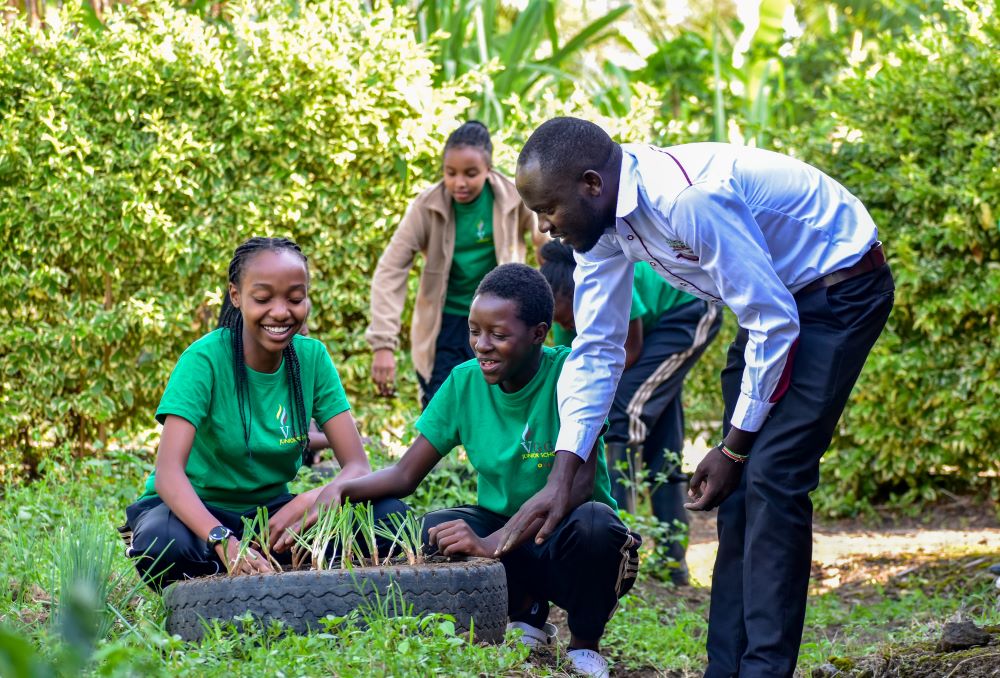Technology, Training and Development
Keeping pace with technology and trends in education is a critical component of the support provided to schools by the Vanessa Grant Trust, particularly where government funding is very limited. And in a rural environment, the availability of facilities goes hand in hand with the delivery of training and development. Speciality skills and expertise bring it all together.
Technology Projects
It is hard to imagine the time when there was just a handful of desktop computers available to the VGT Schools.
Today, every School has computer facilities, teaching software and fully trained staff, with more than 360 computers donated to date. Networking is now available throughout the Vanessa Grant Girls’ School. Not only does this ensure the Schools can offer a full and comprehensive curriculum, but students are also acquiring basic computer skills from nursery level and building on that skill base as they progress through primary and secondary school.
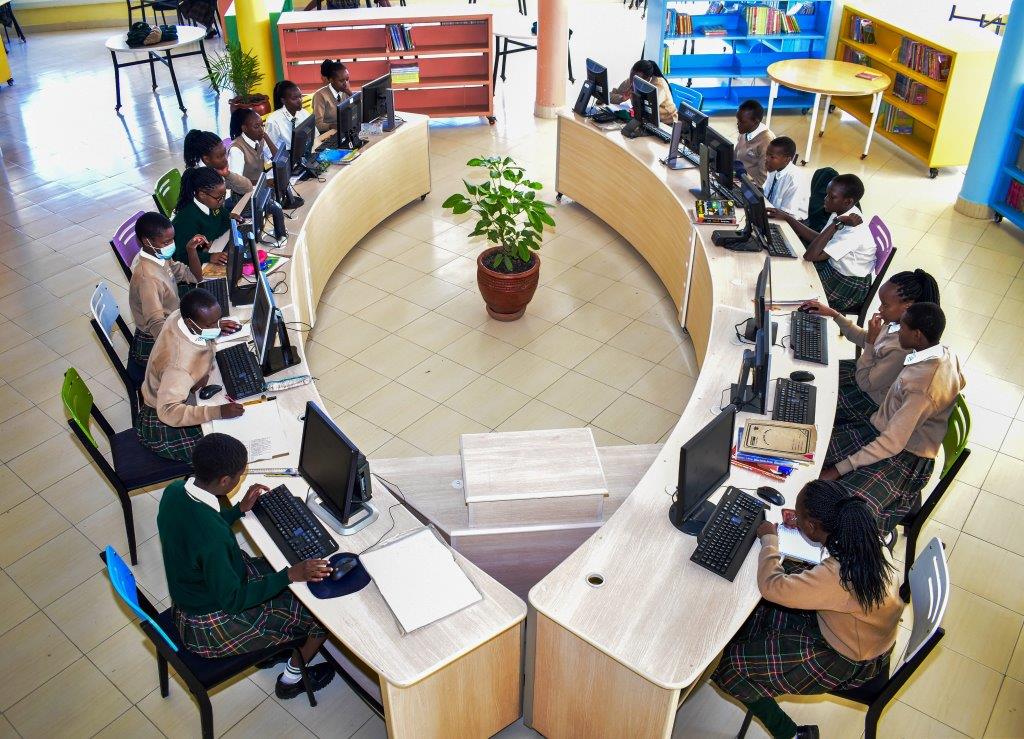
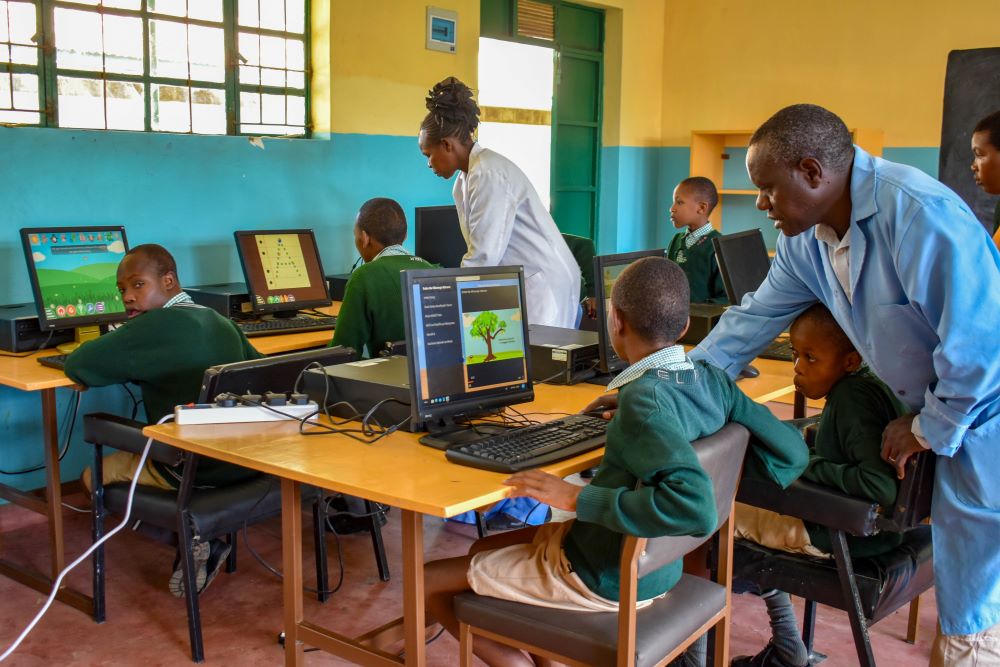
Achieving this level of computer coverage would never have been possible without the vision and incredible generosity of our supporters. Over the last 2 years alone, donors such as Fluid Branding in the UK have provided hardware, software and technical training to enable the rapid acceleration of this development priority. Disused classrooms have been refurbished or rebuilt and furnished to provide secure areas for classes and as well as for the storage of equipment.
The growing success of the technology program across the Schools is directly linked to the substantial training that has been provided for teachers and staff. Methods for teaching computer skills to children, the selection and application of appropriate software to support needs, and critical trouble-shooting skills have all under-pinned the expanding computer program.
Specialised training is taking students even further. The Vanessa Grant Girls’ School has established a Robotics Club as part of the extra-curriculum program. Students are exposed to robotics and drone technology, developing design, building and operating skills.
See the VGGS Robotics Club in action here.
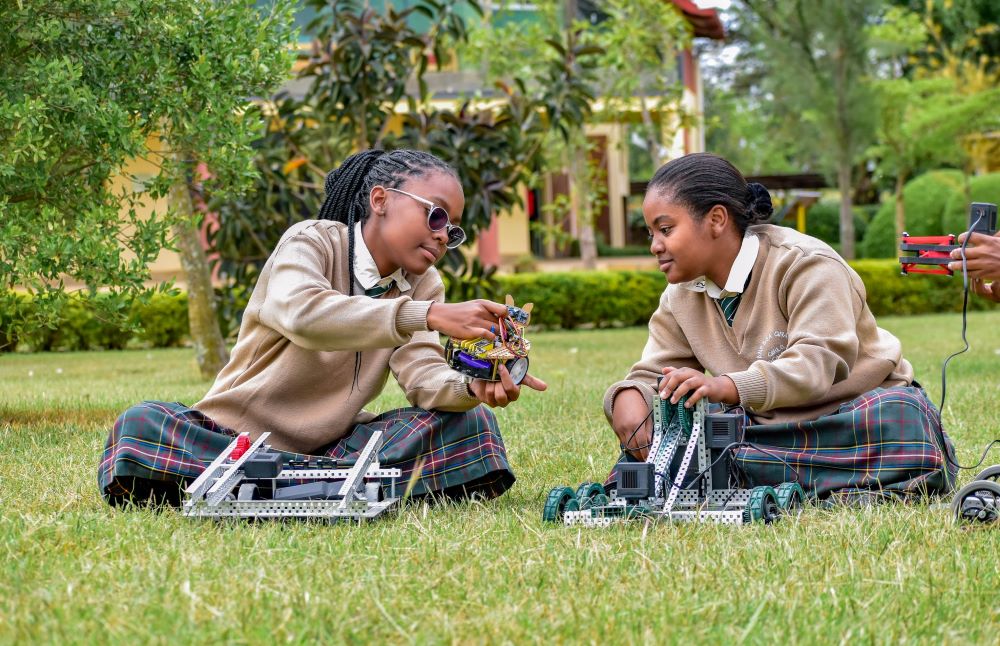
VGGS Robotics Club
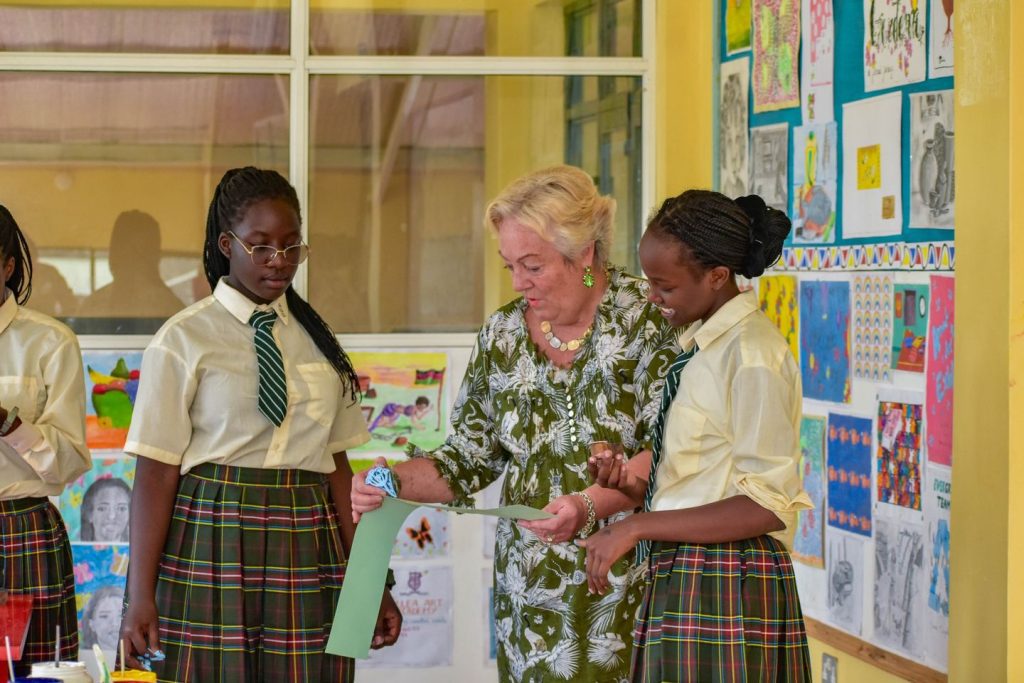
Training and Development
The VGT supports continuing professional training for staff across the Schools as well as for other schools in the Rongai community, and two large meeting spaces in the VGGS and Gogar Primary School provide venues suitable for conducting workshops and larger courses.
All the Schools have benefited from resources provided by specialist teachers and educators who have generously provided expertise for developing the skill base for teachers and supportive care for children with disabilities. Early Childhood Development (EDC) has been a major advance in recent years, from the importance of play to learning in nursery to a dedicated ECD classroom in primary. Mrs Penn Kirk (pictured left), is a global education consultant who has provided invaluable advisory support to the VGT. She has worked with the VGGS leadership to develop the curriculum and its delivery, and her wealth of experience as an International Schools Inspector, governor of several UK schools and former headmistress, has brought an international depth to the VGGS academic program.
Occupational and physical therapy care has been introduced for the Vanessa Grant Special School as part of an holistic approach to the overall well-being of children with disability. Visiting educators have given important input to the expansion and effectiveness of the curriculum. Many of these volunteer teachers have given months of training for our staff, and this transfer of knowledge and skills has been an important factor in the delivery of quality education and care.
In 2005, a therapeutic horse-riding initiative was established under the guidance and support of the late Teresa Orme-Smith, a former VGT Trustee.
Therapeutic horse riding is a form of therapy in which interaction with horses is used to enhance physical, emotional, social, cognitive and behavioural skills for people with disability. A horse’s rhythmic, repetitive movements work to improve muscle tone, balance, posture and co-ordination as well as cognitive skills.
Thanks to the time and equipment provided by enthusiastic volunteers, as well as the loan of gentle ponies, and training from the Riding for the Disabled Association (RDA) Kenya, the activity remains a valued component in the ongoing therapy program.
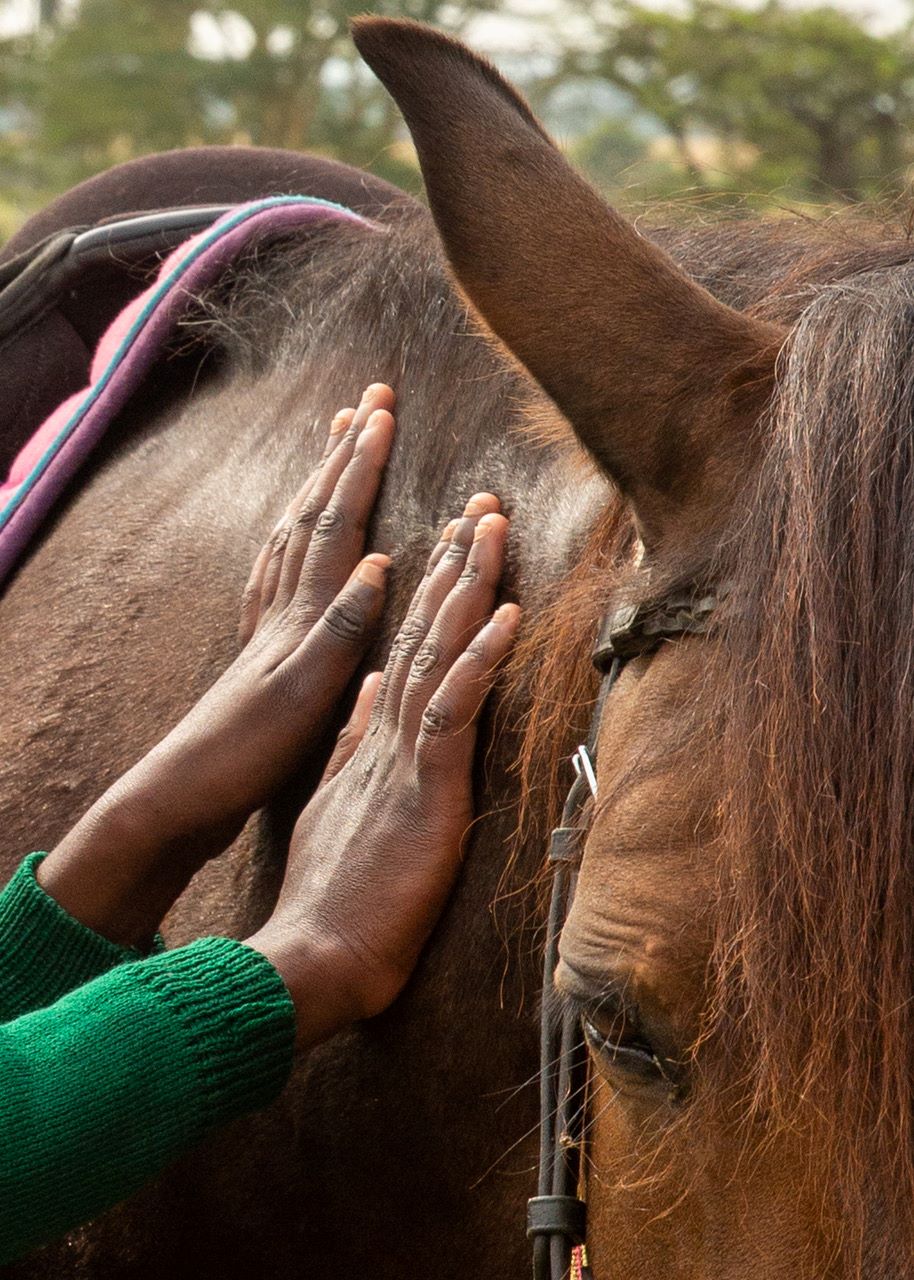
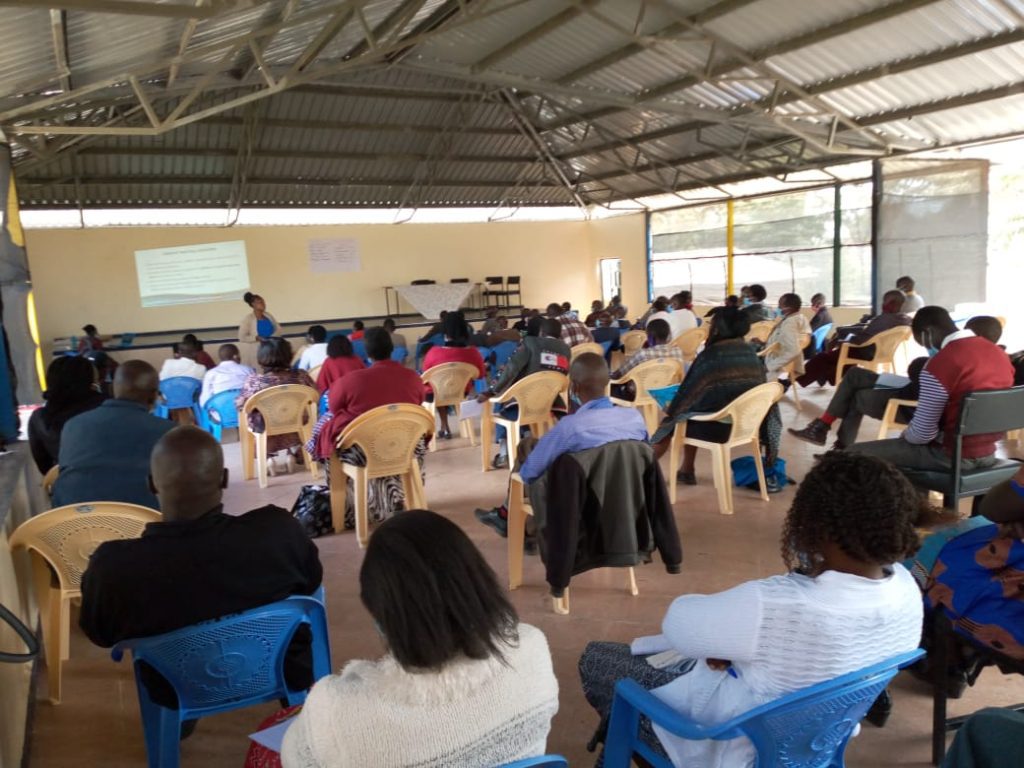
Safeguarding students is a major priority across all the Schools. In 2023, the most comprehensive program to date to develop effective safeguarding policies and procedures was conducted with more than 50 head teachers and senior staff from schools in Rongai. Planned follow up programs will embed safeguarding principles across the local school systems.
School communities can also be impacted by broader societal issues such as mental health concerns and drug misuse. Workshops have been held to better equip staff to recognise and manage these issues, and to foster a safe environment and prevention.
While some of the Schools have always had produce gardens and livestock holdings to supplement the schools’ kitchens, there has been a growing interest in exploring sustainable agriculture and permaculture practices. Students can develop both theoretical and practical skills as part of a broader “general living” curriculum, with knowledge and techniques gained transferring back to their local communities.
